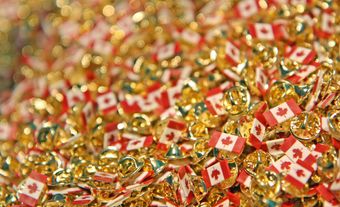This article was originally published in Maclean's Magazine on February 1, 1999
Child Porn Ruling
Shana Chetner doesn't mince words. Child pornography is sexual abuse, the youth counsellor for Greater Vancouver Mental Health Services says, and abuse leads to damaged adults. "The children are exploited and coerced," says Chetner, who has worked with troubled teenagers for nine years. "There is no such thing as consent, because of the power imbalance that exists between kids and adults - refusal is not an option in their minds." Often, she says, children who are used to make pornography end up as prostitutes, convinced that they are nothing more than sexual objects. It doesn't help, she says, when courts make decisions like the one released on Jan. 15 by the B.C. Supreme Court, throwing out the six-year-old law that makes it an offence to possess child pornography. "It's frustrating when you try to work in a system that doesn't support what you are doing," she says. "It sends a message to the kids that society thinks child pornography is OK."
Her dismay was widely shared. Canadians used call-in radio shows, letters to the editor and politicians' fax machines to register impassioned complaints about the ruling. The face of 65-year-old John Robin Sharpe - the retired city planner and advocate of sex with children who convinced B.C. Supreme Court Justice Duncan Shaw that the law is an unjustifiable violation of privacy and freedom of expression - was plastered on warning posters throughout his Vancouver neighbourhood of Kitsilano. And B.C. Attorney General Ujjal Dosanjh quickly announced that the province will appeal the decision to the B.C. Court of Appeal, while federal Justice Minister Anne McLellan said Ottawa will defend its law if the case eventually reaches the Supreme Court of Canada.
Even civil libertarians, normally staunch defenders of free speech, were qualified in their support for the ruling. John Westwood of the B.C. Civil Liberties Association said his group wants products of the imagination - like stories and drawings - removed from the Criminal Code's definition of child pornography. The possession of material that uses real children should still be prohibited, he said. Kathleen Mahoney, a specialist in human rights and constitutional law at the University of Calgary, believes Shaw erred and that his ruling will be overturned. The judge, she said, put too much emphasis on the right to privacy and failed to fully consider the competing problem of sexual abuse of children. "It has been public policy in Canada, forever, that adult sex with children is not a good thing," she said.
So far, the only courts that must follow the decision are British Columbia's lower courts. Until the appeal is heard, the province's Crown prosecutors are asking for adjournments in cases involving possession of child pornography (Criminal Code provisions dealing with making, selling and distributing child pornography are unaffected). But among the public, there has been a groundswell of anger and apprehension, including at least one death threat against Shaw. Eric Vanderham, an Abbotsford-based pollster and market researcher, says the decision is "wildly unpopular" and could aggravate growing discontent over so-called judge-made law. "People worry about too much power in too few hands," he said.
Such fears have struck a nerve across the country. Gary Rosenfeldt, head of Ottawa-based Victims of Violence, the group he helped found after his son was murdered by serial killer Clifford Olson, said that too often, the courts undermine the intent of legislatures. But Mahoney cautions that one case should not be the basis for condemning the judiciary. "Judges make mistakes all the time - that's why we have an appeal process," she said. "To suggest that judges shouldn't be able to judge is ludicrous."
Investigators say they are facing more immediate concerns. Det.-Insp. Bob Matthews, who heads the child pornography unit of the Ontario Provincial Police - by far the country's largest with 15 officers - says the law criminalizing possession is crucial when it comes to finding child pornographers. "Removing that part of the law would be devastating to police. That is what we use to get most search warrants and warrants are the only way we can search for evidence of selling and distributing." Matthews adds that in his 11 years working in the area, he has seen the incidence of child pornography explode, especially since the Internet became widely accessible in the mid-1990s. Even though his unit doubled in size last year, Matthews said police are still "barely scratching the surface."
Dan Nugent, 30, has firsthand experience with what it feels like to be on the receiving end of a pornographer's demands. Now staying in a Vancouver alcohol and drug treatment centre, Nugent began working as a prostitute when he was 15. He was often approached to pose for pornographic pictures, he says, because of his boyish looks. Once, he obliged, but then regretted the decision and took the Polaroid pictures with him. He says the court decision, which he finds "sickening," will only make things easier for child pornographers. "It gives them the freedom to do what they want," he says. "And once the ball gets rolling, it gets harder and harder to stop."
Maclean's February 1, 1999

 Share on Facebook
Share on Facebook Share on X
Share on X Share by Email
Share by Email Share on Google Classroom
Share on Google Classroom

